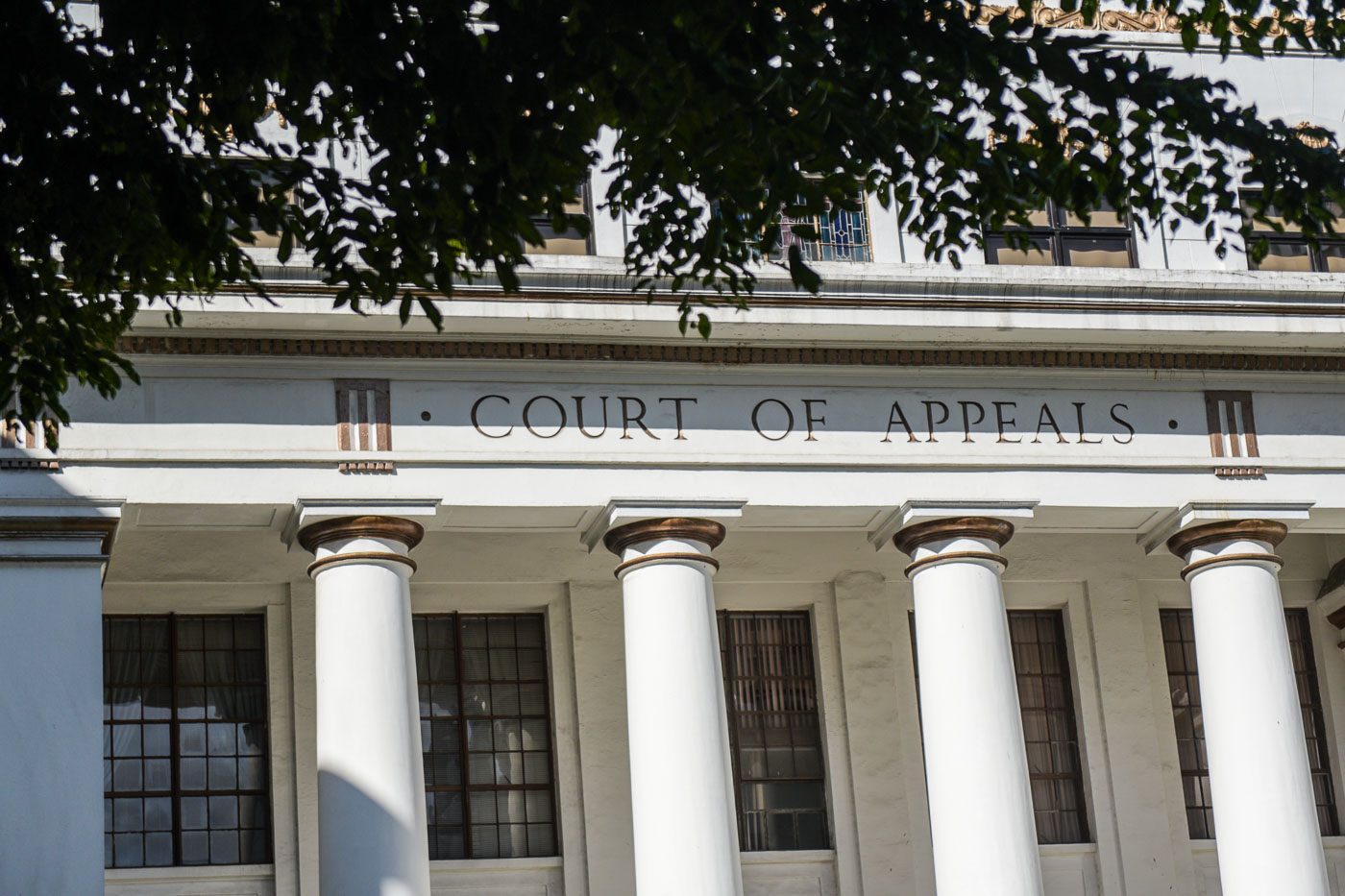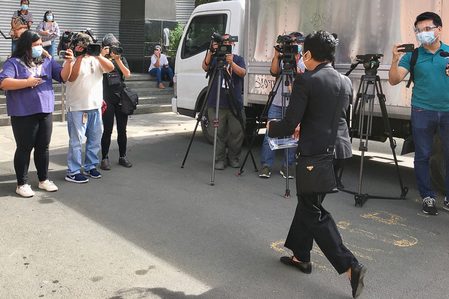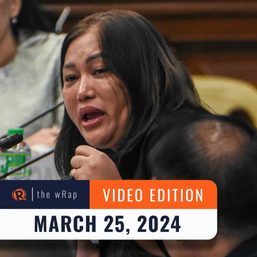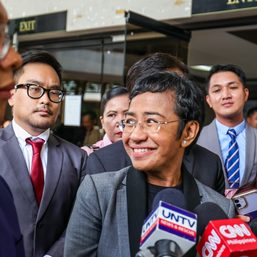SUMMARY
This is AI generated summarization, which may have errors. For context, always refer to the full article.


MANILA, Philippines – In the most high profile question about the constitutionality of the 2012 cyber libel law, Rappler CEO and Nobel peace prize winner Maria Ressa challenged the conviction by the Philippine Court of Appeals (CA) by invoking a basic principle in criminal law: when in doubt, decide in favor of the accused.
The motion for reconsideration filed by Ressa and former Rappler researcher Reynaldo Santos Jr. brought up mostly questions of the appellate court’s interpretation of the cyber libel law – contested during its passage in 2012 up to now because it retained the 1930s definition of defamation in an era ruled by the internet.
“When this case called for the application of these fundamental principles, this Court did the exact opposite and adopted the interpretations of the law and of facts that are most prejudicial to the accused,” said the appeal prepared by the Free Legal Assistance Group (FLAG), a veteran in free speech cases.
The CA sustained the conviction of Ressa and Santos earlier in July. In doing so, it not only added eight months to the prison sentence, but also extended cyber libel’s prescription period to 15 years. Prescription covers the period during which one can still file a case.
Prescription period
The prescription period is crucial because the article in question was published in May 2012, but complainant Wilfredo Keng filed the complaint only in 2017. If the 1930s revised penal code (RPC) is to be followed – that libel prescribes in one year – Keng would have lost the right to sue. This was the first interpretation of the legal division of the National Bureau of Investigation (NBI) when they junked the complaint, but they were overturned by the bureau’s leaders.
The complication arose because the 2012 Cybercrime Law does not provide a specific prescription period for cyber libel.
The prosecution and the Manila Regional Trial Court used an old law to interpret prescription for cyber libel as 12 years. The CA used the RPC to interpret prescription as 15 years.
FLAG called this interpretation “tiered” and argued that when lawmakers left out a specific prescription period in the 2012 law, it was because the RPC “had already clearly and unmistakaby provided for it: one year.”
“It is a basic principle that where harmony between two provisions of the law is impossible, the specific provision prevails over the provision of general character,” said the motion.
After Ressa and Santos were convicted, a bill was filed to amend the 2012 law to say clearly that the prescription period is one year.
Republication
Another potential absolution for Rappler was the timing of publication – the article naming Keng as having lent an SUV to the late former chief justice Renato Corona was published May 2012, or four months before former president Benigno Aquino III signed the Cybercrime Law in September that year.
But in 2014, Rappler staff noticed that the word “evasion” in the phrase “tax evasion” was misspelled, and corrected it.
The prosecution, the trial court in Manila, and now the CA all counted that as a separate offense that started in 2014 when the law was already in effect.
FLAG said that “correcting a typographical error is too trivial to constitute a separate act of publication.”
Free speech advocates have always argued that the 1930s RPC definition of libel is outdated to fit the internet era, where one can publish anything, and the content can be edited anytime.
FLAG pointed out that the article never even changed URLs or the Uniform Resource Locator or simply the link.
“A contrary interpretation would do great violence to the constitutional protection afforded to speech and expression. If the revision of every unrelated matter on the internet constititutes a new act of publication, then every edit button on every online post is an invitation to incur criminal liability anew,” said the motion.
FLAG said if this interpretation were to be followed, everyone who posts would be hard-pressed to just delete rather than edit an error, and this, it said, “is the very manifestation of censorship the Constitution so abhors.”
Malice
Libel’s main element is malice and it has two types. Presumed malice which means every defamatory article is presumed malicious, and actual malice which puts the burden on the accuser to prove that it was indeed malicious.
Our laws set the standard differently if the accuser is a public figure or a private person. If the accuser is a public figure, he or she has the burden of identifying the actual malice.
Keng was regarded as a private person even by the CA justices.
FLAG argued that Keng is a public figure on account of his being ranked by Forbes as among the 40 richest in the country, a business leader in several publicly listed companies, and someone who had “gained enough notoriety to warrant the National Security Council to investigate his dealings and prepare a dossier on his activities.”
“For this Court to take Mr. Keng’s self-serving autobiographical description that he is a low-key private person…is to wallow in fiction despite glaring, obvious, and incontrovertible truths,” said the motion.
The motion pleaded for acquittal of Ressa and Santos, and for the revocation of the damages awarded to Keng.
They also asked the CA to look at the constitutionality of cyber libel, telling the justices: “libel is a content-based regulation on the freedom of speech and of the press and is thus presumed unconstitutional and subject to scrutiny.”
Ressa and Santos remain free and won’t have to go to jail until and unless the Supreme Court sustains the guilty verdict. – Rappler.com
Add a comment
How does this make you feel?












![[OPINION] You don’t always need a journalism degree to be a journalist](https://www.rappler.com/tachyon/2024/06/jed-harme-fellowship-essay-june-19-2024.jpg?resize=257%2C257&crop=287px%2C0px%2C720px%2C720px)







![[Free to Disagree] De Lima stood firm. But some men are trash.](https://www.rappler.com/tachyon/2024/07/TL-Leila-de-lima-stood-firm-some-men-brave-some-trash-July-1-2024.jpg?resize=257%2C257&crop_strategy=attention)



![[OPINION] De-weaponizing tax laws: Upholding press freedom and economic growth](https://www.rappler.com/tachyon/2023/10/tl-upholding-press-freedom-economic-growth.jpg?resize=257%2C257&crop_strategy=attention)

There are no comments yet. Add your comment to start the conversation.